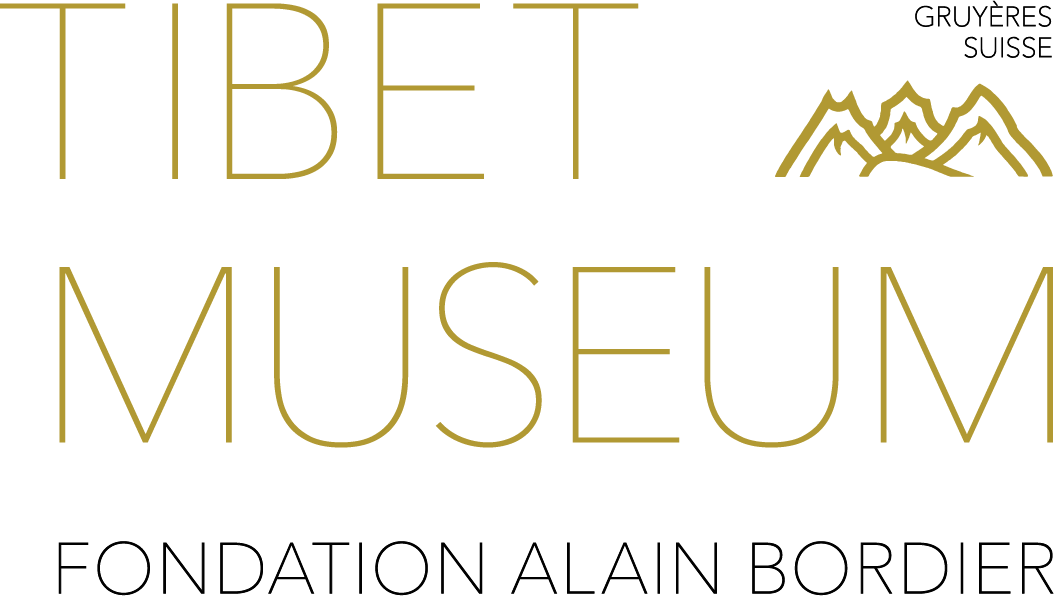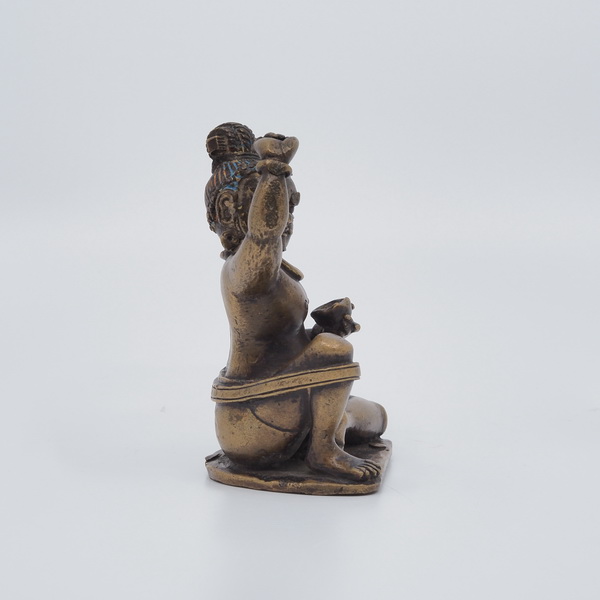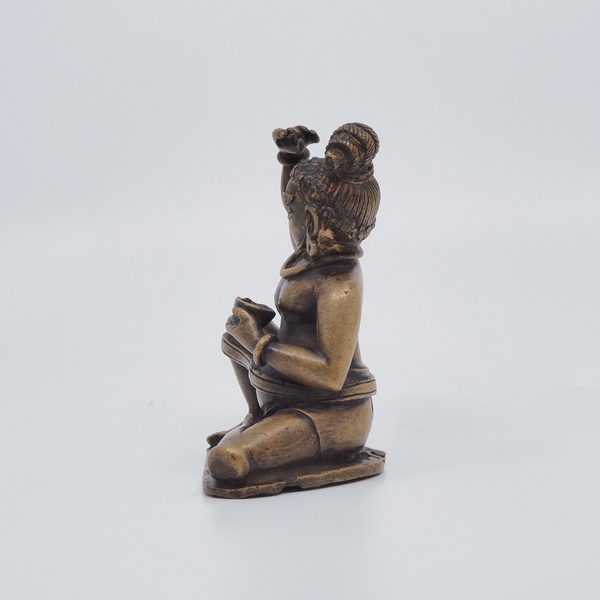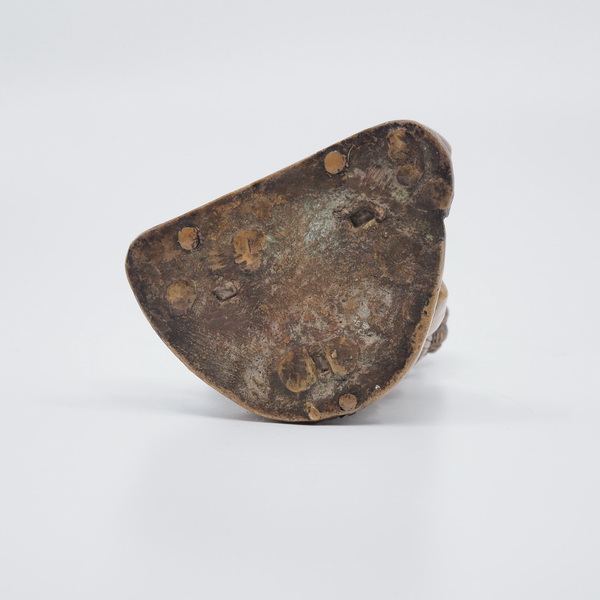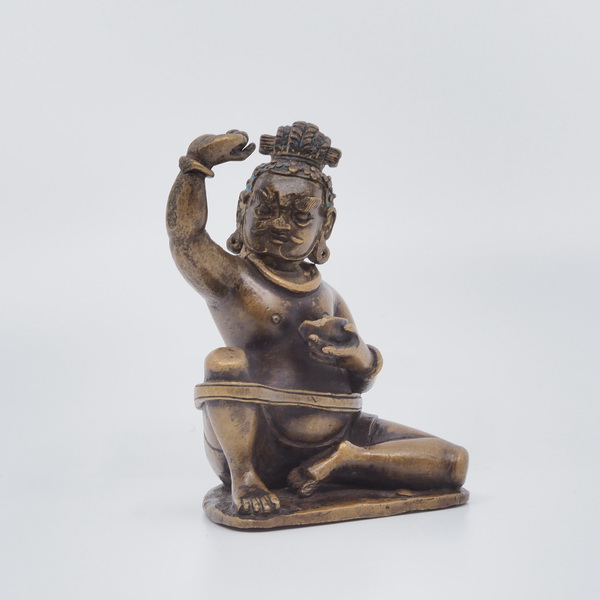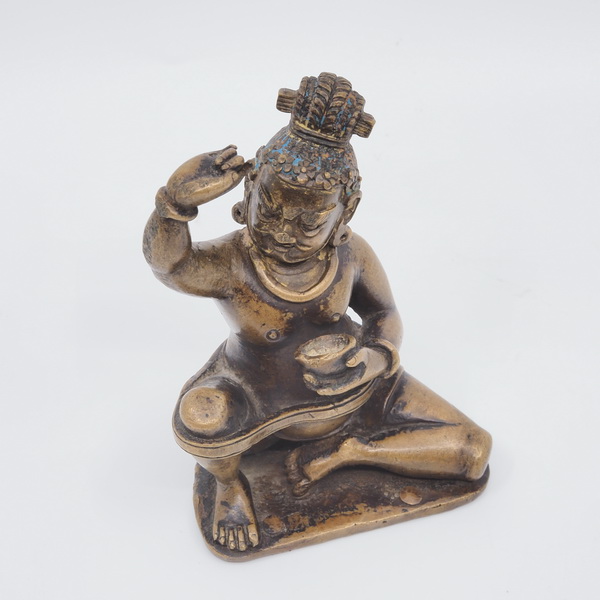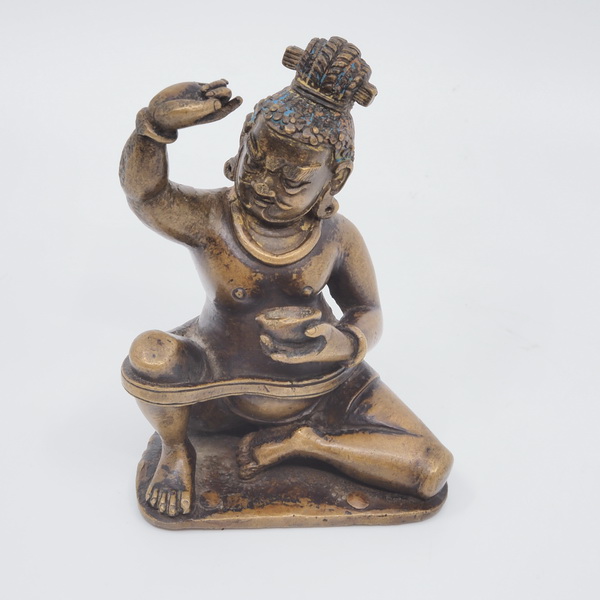ABS 266
Code: ABS 266
Country: Tibet
Style:
Date: 1400 - 1500
Dimensions in cm WxHxD: 7 x 9.6 x 5
Materials: Brass
Mahasiddha Virupa
Mahasiddha Virupa is seated with the support of a yoga band in the attitude of royal ease. He displays the gesture of threatening (tarjani-mudra) with his right hand, and holds a skull-cup (kapala) in his left. This posture refers to a story, in which he was sitting in a tavern, drinking wine from his scull-cup all day. When he was asked to pay, he drew a line on the ground and said he would pay when the shadow reached that line. With his hand raised, he now fixed the sun with the threatening gesture so that it would not move for two days and one night. When the living beings began to suffer from the heat, the people turned to the king for help. When he heard of the ascetic's magical powers, he paid the bill, and Virupa went on his way.
Mahasiddha Virupa was born in India and lived during the first half of the 9th century. It has to be noted that two Mahasiddhas of the name Virupa are known, one being the teacher and the other his disciple. Ordained in Somapura Monastery as a monk, Virupa lived a monastic life for 25 years. After a dispute, he was expelled from the community and chose the life of a wandering ascetic. A yogi or yogini who possesses supernatural physical and psychic powers is called a Mahasiddha. Many of them lived between the 8th and 12th centuries and were followers of Tantrism. They demonstrated with an unconventional way of life, and in protest against the then prevailing hegemony of scholasticism and the clergy, that the path to enlightenment can also be taken outside of monastic institutions.
Mahasiddha Virupa is seated with the support of a yoga band in the attitude of royal ease. He displays the gesture of threatening (tarjani-mudra) with his right hand, and holds a skull-cup (kapala) in his left. This posture refers to a story, in which he was sitting in a tavern, drinking wine from his scull-cup all day. When he was asked to pay, he drew a line on the ground and said he would pay when the shadow reached that line. With his hand raised, he now fixed the sun with the threatening gesture so that it would not move for two days and one night. When the living beings began to suffer from the heat, the people turned to the king for help. When he heard of the ascetic's magical powers, he paid the bill, and Virupa went on his way.
Mahasiddha Virupa was born in India and lived during the first half of the 9th century. It has to be noted that two Mahasiddhas of the name Virupa are known, one being the teacher and the other his disciple. Ordained in Somapura Monastery as a monk, Virupa lived a monastic life for 25 years. After a dispute, he was expelled from the community and chose the life of a wandering ascetic. A yogi or yogini who possesses supernatural physical and psychic powers is called a Mahasiddha. Many of them lived between the 8th and 12th centuries and were followers of Tantrism. They demonstrated with an unconventional way of life, and in protest against the then prevailing hegemony of scholasticism and the clergy, that the path to enlightenment can also be taken outside of monastic institutions.
